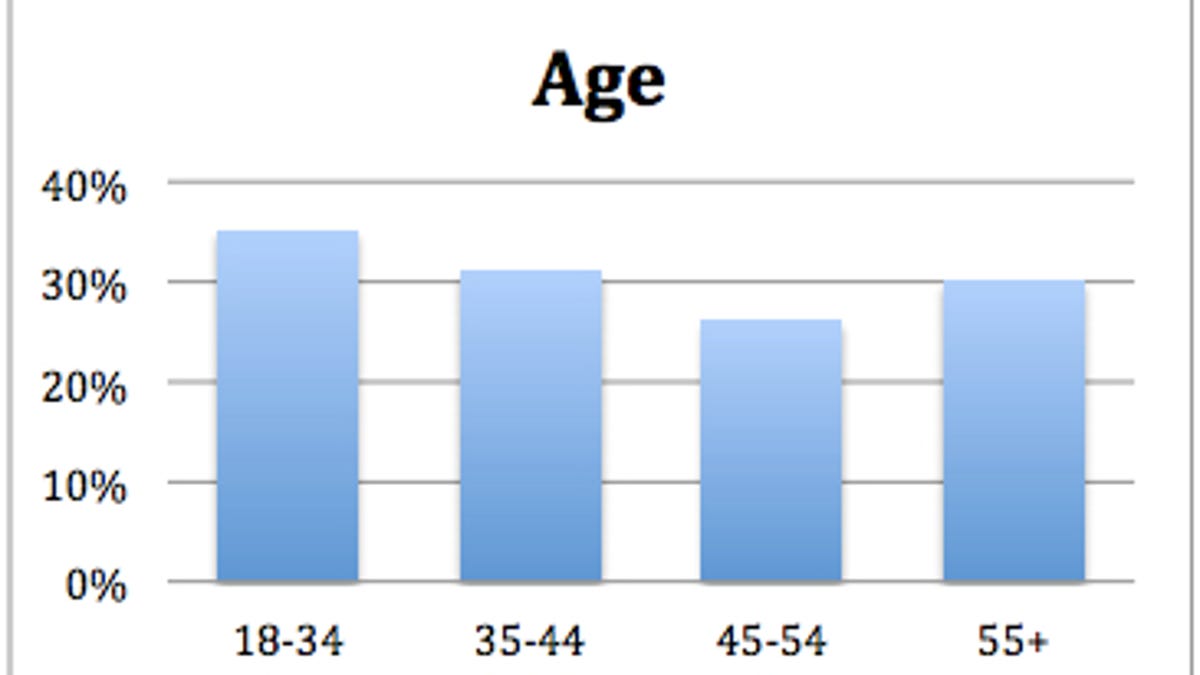How Googling others affects voting, hiring and dating
A new study confirms the importance we place in personal search results. Plus, tips on improving what others see about you.

Despite all the new ways of learning about someone -- including Facebook and LinkedIn -- Googling others remains a major online activity. A new survey by BrandYourself, an online reputation company, and polling giant Harris Interactive shows that when it comes to voting, business and dating, people place a lot of emphasis on what they find in personal search results.
Here are some excerpts from "Just Google Me":
General -- Almost all online U.S. adults use search engines to look up other people: 86% used a search engine like Google to find more information about another person. But most people aren't well represented: 75% of online U.S. adults have searched their own name, yet almost half (48%) say most of the search results about them aren't positive, and nearly a third (30%) say nothing shows up at all.
Politics/Voting -- Online searches of candidates influence voting decisions, especially among students and young adults. Nearly a third (31%) of online U.S. adults that have searched a person online have looked up a politician, and over half said the search influenced their voting decision. These numbers increase substantially among younger U.S. adults, especially students.
Business - Your search results affect whether or not people do business with you. Among U.S. adults that have searched someone online, nearly half (42%) have searched someone before doing business with them, and 45% have found something that made them decide NOT to do business with the person.
Dating/Relationships - Online searches affect your romantic life. Almost half (43%) of online U.S. adults that have searched someone online have searched a potential date, significant other, or ex boyfriend/girlfriend, making romantic searches the most common search among U.S. adults.
The full survey is embedded below.
BrandYourself offers free and for-pay services to manage and improve your personal search results (its free search score service is worth trying out). So it's obvious why it would want to bring more attention to online personal searches through this kind of survey. But despite that motivation, I think there are some useful ideas in the survey and it serves as a handy reminder that we need to track and try to improve what others see when they look for us online.
I asked Patrick Ambron (@PatrickAmbron), CEO and co-founder of the startup, some questions about online reputation via email. Here are his answers, including some timely tips:
Question: What surprised you the most about the survey?
Ambron: While it wasn't surprising how often people Google other people (I do it all the time), I was surprised by how much the results influence our decisions and opinions of other people, especially among younger people. It's easy to forget that this next generation grew up with these types of technology. To them, you are who Google says you are. It's that simple.
How has the rise of social media affected personal search results?
Ambron: Social Media has put everybody online. Even if you don't happen to be one of the 1 billion people using social media on a regular basis, you have friends, family, and acquaintances out there, posting updates, tagging photos, and mentioning your name. The point is, it's no longer reasonable to believe you can remain anonymous or hidden in Google. That's why it's so important to be proactive about your own Google results. If you don't define yourself, someone else will define you.
Is it easier or harder these days to control your reputation compared to a
couple of years ago?
Ambron: I don't know if it's necessarily harder, but it certainly more involved. Before social media and Web 2.0 -- where publishing and sharing on the Web became accessible to everyone - you didn't have to worry about any sudden shifts in results. Today, you have to keep track of everything, because it only takes one blog post from an unhappy ex, one status update from a former co-worker, or one poorly judged tagged photo from an old friend to completely change your reputation. It's also become more important. Tools like Google have become essential parts of our lives, which means, like it or not, you are going to be Googled and judged based on your results.
Apart from using BrandYourself, what are your top three tips for folks who
want to improve the quality of personal search results?
Ambron: 1. Claim your domain name. Visit GoDaddy.com and purchase all domains containing your name (yourname.com, yourname.me, etc.). It's the most important thing you can do for 10 bucks. These show up high, so even if you're not planning to create a personal Website, you'll prevent others from hijacking your results.
2. Build your personal website/hub. With free tools like Wordpress and Tumblr, anyone can quickly build their own website. This will be the hub that shows up high in results.
3. Set up profiles on Facebook, LinkedIn, and Twitter. Search engines tend to rank their links high so you should defintely be on them. Even if you don't plan on using them much, it keeps other people with your name from hijacking your results.
4. Sign up for alerts. When your name appears in a news article or blog post, Google.com/alerts will let you know about it. SocialMention.com has alerts that will inform you when you pop up in a tweet or are tagged in a photo on Flickr or Facebook.
How often do you Google others? How much emphasis do you place on what you find online about others? How about Googling yourself (also known as ego surfing)? Tell us in the comments.

